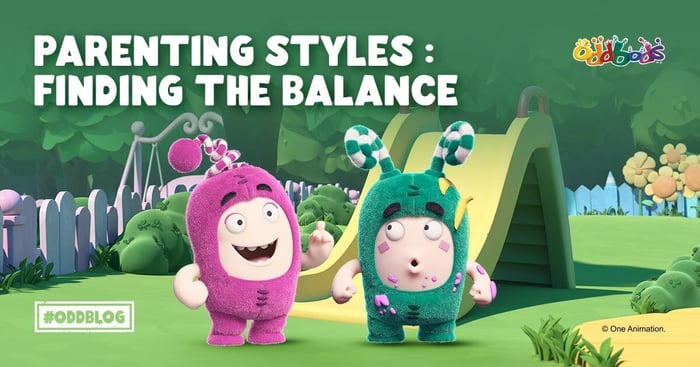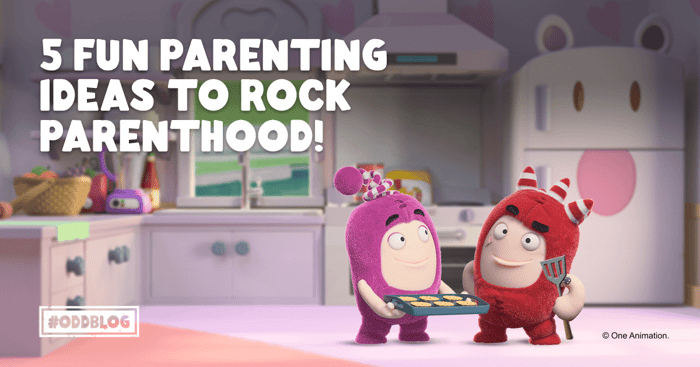Raising a child is a walk in the park... Jurassic Park! Jokes aside, for many, parenthood is one of the most challenging journeys. Few experiences in life have as much impact on someone as having a child. Still, it's a land of rich promise and countless rewards where individuals and couples can learn from and support each other.
Every mom and dad will have different parenting styles influenced by their upbringing. Yet the good news is there's no right or wrong way to parenting — it all comes down to what works for you and your little one.
In this article, we’ll talk about four of the most common parenting styles and what you can learn from each to help you find the right balance in raising your little champion!
Top it off with a sprinkle of compromise, understanding, empathy, and much love. And remember, in those frantic moments when you’re questioning everything, take a deep breath and remind yourself that there’s no such thing as perfect parents or perfect kids.
4 Common Types of Parents and Their Parenting Styles
1. The “Anything Goes” Parent
Permissive moms and dads are highly responsive to their children’s needs, with low demands, expectations or directions for their children.
They also give high autonomy to their children to decide on things, avoid conflict, and appease their children! They are child-driven and go to great lengths to keep their children happy, sometimes at their own expense.
Key Characteristics: Empathetic and conflict-averse.
2. The “I Know You’re Tired, But…” Parent
Authoritative parents supporting, nurturing, and responsive, while setting clear boundaries and rules for their children. Image from Kenny Eliason.
Authoritative parenting is very much like a tiger parent — but they can also be a friend, sister, brother, mother, father, grandmother, angel, fairy, even Santa Claus — whenever the situation demands it.
While they are highly responsive to their child’s needs, they also set clear expectations and rules to abide by.
Authoritative parents are open communicators, and they listen to their children’s feelings and react to them rationally. They also understand that children are bound to make mistakes and do silly things. If they err, these parents turn these opportunities into reflection points for their children and ensure they don’t repeat past mistakes.
Key Characteristics: Firm yet flexible, reasonable and empathetic.
3. The “Not Now, I’m Busy!” Parent
These parents are more uninvolved and provide little nurturing or guidance to their children. They are indifferent to their child’s needs because of other commitments or do not have the drive to nurture, guide or give attention to their children.
In cases like this, many parents struggle with their self-esteem and have deep-rooted unresolved issues perhaps stemming from a traumatic childhood.
For the outsider not involved in the parenting journey, these parents can be seen as cold and uncaring — but not always intentionally, as they are fighting battles no one knows. Emotional baggage is not the easiest to “unlug”.
Unfortunately, children who are the by-products of neglectful parenting can continue the generational cycle of being traumatised. At the same time, there is also a possibility of the child being completely independent and self-sufficient due to the years of continuous neglect.
Key Characteristics: Unattentive, neglectful and stressed.
4. The “Because I Said So!” Parent
Authoritarian parents can be highly demanding and do not exercise contextual discretion when enforcing their rules.
They may neglect the social-emotional cues that their child exhibits under the guise of “strict parenting” or “discipline”. Communication is also primarily one-way, where dialogues or discussions are rare.
Key Characteristics: Highly strict and rigid.
Finding the right balance: Create your own parenting style
Cater your parenting approach to what the situation calls for. Image from Jessica Rockowitz.
Your parenting style doesn’t have to be governed by the four distinctively different types because the reality is that they can overlap. Now that you know what characterizes each of the four most common parenting types, you can cater each approach to different situations.
For example, if you identify more as an “Anything Goes” parent with minor demands and provide high autonomy for your kids, there may be times when you need to adopt a more authoritative approach. This can be in situations with major consequences, such as demanding your child sticks close to you when crossing the road or not wandering around on their own when travelling in a foreign country.
Additionally, there is some evidence that a child's behaviour can impact parenting styles — even cultural factors also play an important role in parenting styles and child outcomes. One study published in 2006 found that the parents of children who exhibit bad behaviour began to show less parental control over their kids with time.
Such results suggest that kids might misbehave not because their parents were too permissive, but because the parents of difficult or aggressive children gave up trying to control their kids. Remember, there is no universally "best" style of parenting.
You’re in this together, parents! 🤟 On days that your kiddos test your limits to the bone or throw a fiery tantrum, it’s still possible to have a hearty laugh about it. Check out our article on how you can diffuse anger by using humour!
P.S. Check out this compilation episode ‘Really Odd Parents’ for a bit of laughter with your kiddos. We promise that you can draw some similarities! 😜






